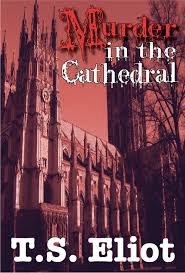Measure for Measure
About author
William Shakespeare 26 April 1564 – 23 April 1616) was an English poet, playwright, and actor, widely regarded as the greatest writer in the English language and the world's pre-eminent dramatist. He is often called England's national poet, and the "Bard of Avon".His extant works, including collaborations, consist of approximately 38 plays, 154 sonnets, two long narrative poems, and a few other verses, some of uncertain authorship. His plays have been translated into every major living language and are performed more often than those of any other playwright.Plot Overview
Isabella, Claudio's sister, is about to enter a nunnery when her brother is arrested. She is unfailingly virtuous, religious, and chaste.
When she hears of her brother's arrest, she goes to Angelo to beg him for mercy. He refuses, but suggests that there might be some way to change his mind. When he propositions her, saying that he will let Claudio live if she agrees to have sexual intercourse with him, she is shocked and immediately refuses. Her brother agrees at first but then changes his mind. Isabella is left to contemplate a very important decision.
Isabella is, in a way, let off the hook when the Duke, dressed as a friar, intervenes. He tells her that Angelo's former lover, Mariana, was engaged to be married to him, but he abandoned her when she lost her dowry in a shipwreck. The Duke forms a plan by which Isabella will agree to have sex with the Angelo, but then Mariana will go in her place. The next morning, Angelo will pardon Claudio and be forced to marry Mariana according to the law.
Everything goes according to plan, except that Angelo does not pardon Claudio, fearing revenge. The provost and the Duke send him the head of a dead pirate, claiming that it belonged to Claudio, and Angelo believes that his orders were carried out. Isabella is told that her brother is dead, and that she should submit a complaint to the Duke, who is due to arrive shortly, accusing Angelo of immoral acts.
The Duke returns in his usual clothes, saying that he will hear all grievances immediately. Isabella tells her story, and the Duke pretends not to believe her. Eventually, the Duke reveals his dual identity, and everyone is forced to be honest. Angelo confesses to his misdeeds, Claudio is pardoned, and the Duke asks Isabella to marry him.
Themes
THEME OF JUSTICE AND JUDGMENT:When a corrupt deputy sentences a man to death for the crime of fornication, Shakespeare asks us to consider whether or not morality can or should be legislated. On the one hand, the play warns that men and women don't necessarily have the right to pass judgment on their fellow human beings. At the same time, Measure for Measure suggests that a person who commits a crime (or sins), should be made to pay – either by making some sort of restitution or by suffering an amount that's commensurate with the suffering he or she has caused.
SEX
MORALITY
Measure for Measure is a play obsessed with death, both physical and spiritual. On the subject of mortality, Claudio delivers one of the greatest speeches in all of Shakespeare (one that many critics think rivals Hamlet's famous "To be, or not to be" soliloquy). For many characters, death goes hand in hand with sex and marriage. At other times, the play's view of mortality is more flippant than serious, as when Barnardine insists he's too hungover to be executed and when Pompey declares that a good hanging is the best cure for a hangover.
MARRIAGE
As we know, all Shakespearean comedies work their way toward endings that culminate in one or more marriages. This is also true of Measure for Measure, but, in this play, marriage doesn't necessarily bring about a happily ever after. For many characters, marriage is a form of punishment (literally and figuratively). For others, it's a fate worse than torture or death, making Measure one of the most cynical plays about the nature of marriage.
RELIGION
The play dramatizes Christian doctrine in a prominent, in-your-face kind of way. In particular, Shakespeare invokes the concepts of sin, atonement, judgment, and mercy. The title, Measure for Measure, comes from the Gospel of Matthew and this biblical passage also informs the main plot, in which a hypocritical deputy sentences a man to death for having sex with his fiancé and then turns around and propositions a young woman. The play also features a Duke who spends most of his time disguised as a holy friar, a novice nun obsessed with virginity, and man whose harsh and judgmental attitude resembles that of the sixteenth-century English Puritans.
GENDER
In Measure for Measure, three major female characters have speaking roles: a prostitute who's arrested for running a brothel, a wannabe nun who's blackmailed by a corrupt deputy, and a woman who's jilted for not having a large enough wedding dowry. In the play, Shakespeare creates limited roles for these figures, prompting the audience to consider more generally a woman's place in society. Although these characters inhabit vastly different spaces in the social spectrum, they all have one thing in common – each is a victim of patriarchal authority.
Cites:
http://www.sparknotes.com/shakespeare/measure/summary.html
https://www.google.co.in/search?q=Measure+for+measure&client=ubuntu&channel=fs&source=lnms&tbm=isch&sa=X&ved=0ahUKEwjz-c6z19_SAhWHRY8KHRPOAp0Q_AUIBygC&biw=1319&bih=673#imgrc=HllL4PlfWar0TM:





